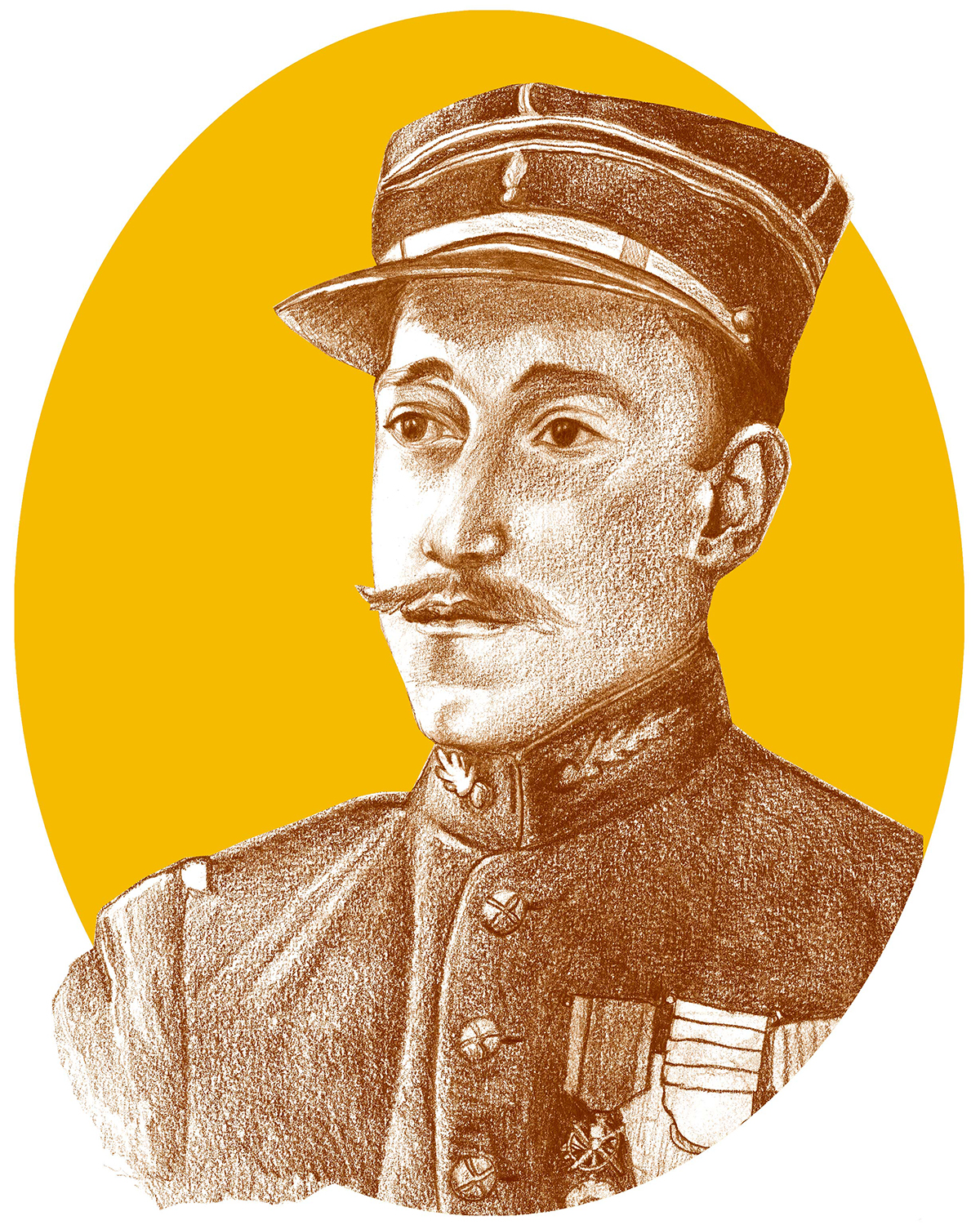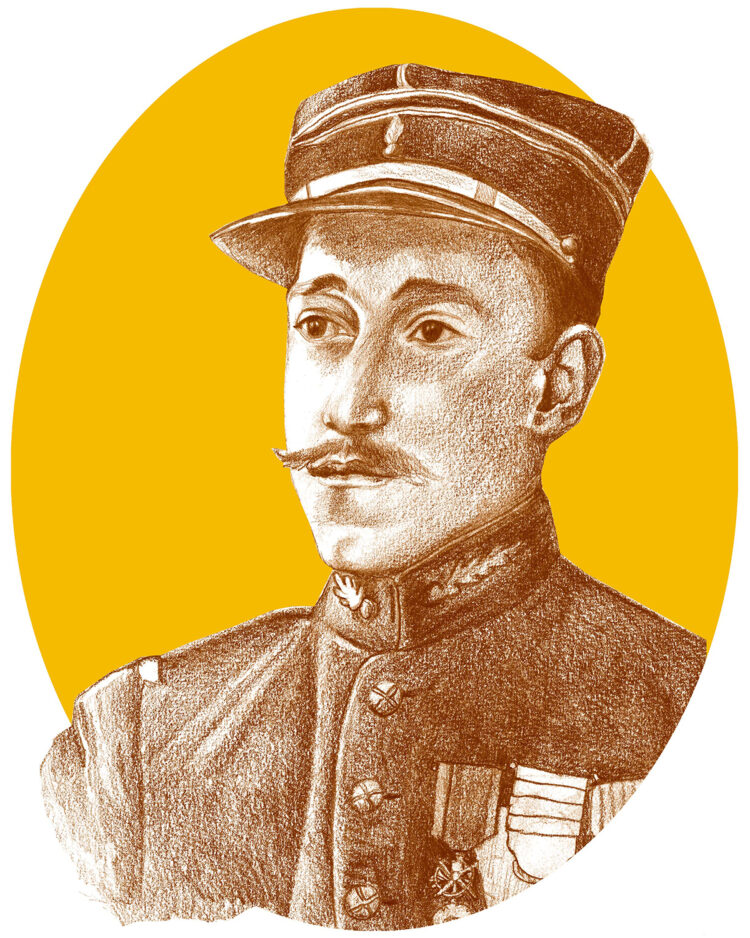(Ephesians 5:8)
Parents, leaders, and educators, we have a mission, a duty to lead children's souls toward the Light which will be their guide and their happiness. In order to illuminate the way that lies before each one of us, once a week we invite you to discover some of the words of certain wisemen and witnesses, measuring their worth by the words of St. Thomas Aquinas: “Do not consider the one who speaks, but whatever good you hear from him, confide it to your memory.” (from The Sixteen Ways to Acquire the Treasure of Knowledge by St. Thomas). Happy reading!

“Fidelity is like the spouse waiting for her husband to come home from the Crusades: she never despairs, and she never forgets.”
Psichari (1883-1914)
Officer and Writer, third order Dominican
“The first thing which struck me about his face, whose openness and rough features were mostly without beauty, were his eyes – two “unforgettable, admirably frank and clear eyes”, magnetic and fresh, shining with childlike candor and overflowing with an unfulfilled generosity and goodness. Goodness – yes, that was the most striking feature of his character. Physically, his whole person bore witness to the vigor, health, stability, and exuberance that were in him. Always “natural,” with him what you see is what you get! Ah! Useless asking him to dress up his appearance or his language! Nothing in his behavior was pre-arranged, nor skewed; and quite the opposite he seemed to go about everything with a detached, though vigorous air. This is how I am, he seemed to say. If ever he put on airs it was rather a sort of ruggedness, a disdain of conventions, a scorn for refinement and elegance, and a naive and clumsy way of showing his opposition to worldly things, and his will to detach himself from them. How evident it was that he was above such things! All or nothing, voilà Psichari such as he appeared from the get-go, stunningly prompt to act, to give of himself, to engage. Didn’t I experience just that, a bit ago, when he held his hand out to me? He showed his true self right away, the first time you met him. One thing was sure: he certainly went astray, but his heart remained pure; were that not the case he would never have remained so intrepid. There was something healthy, something untouched, dare I say virginal, which eclipsed all the rest. But the minute I would begin to see shadows forming in my opinion of him, whence came the certitude which made me immediately say, “That shadow will become a light soon enough”?… What a unique young man! It was said that in his ancestors there was the energy and quarrels of Bretons and Dutch, Orientals and Celts, Greeks and Venetians, Catholics and Protestants, mystics and daredevils – such was his entire ancestry, the Renans, the Scheffers, the Biazi, the Psicharis… were there any great ideas that wouldn’t set him afire, if he were to unleash all the power that was stored up within him? Such was his temperament. A tumult of confused thoughts, as contradictory as all the ancestral qualities that made up his blood. His “ideas” came from all over the place! but, deep down, how dolorous all this exaltation seemed: he felt it like a savage wrath… For this great man-of-action was no theoretician, this soldier no constructor of systems: he was simply a will-to-action, a will power straight and sure of his path. “Think me mad, if you will,” he mused, “but beneath my madness is wisdom, and what I do is done well.” And his impatience would cry out to us, “Can’t you see that I can’t live here anymore!” His tenderness was overcome by it, and in his loving eyes, I saw an abyss of solitude and exile open up between us… Leave, he had to leave: enough of all the detours, the complacency, the useless regret, the looking back. He had to forge ahead, and in order to test the temper of his soul, he had to break his final chains. It’s because he’d understood this, that one can say: he must be saved. Life, his life, was going to free him, to take him up in one fell swoop: nothing beautiful in him could afford to be lost… Who once met his regard, “his crystal regard that never faltered,” that person discovered that Ernest Psichari had a soul, and that “he was born to believe and to hope, and that he had a soul which was not made for doubt, nor for blasphemy, nor for anger.” We can sense that he didn’t bask in his pain like so many others did, and he never said, “I’m rotten, but what can you do?” His makeup was so ardent, so violently righteous, that the day would come when this passion within would carry him toward the sole object of all seeking, and would demand the same strength, the same nobility, the same candor, with an equal exigency and impetuosity.”
Henri Massis (1886-1970)
Literary critic, political essayist, and literary historian
In the same category « Christian Life », also read :

